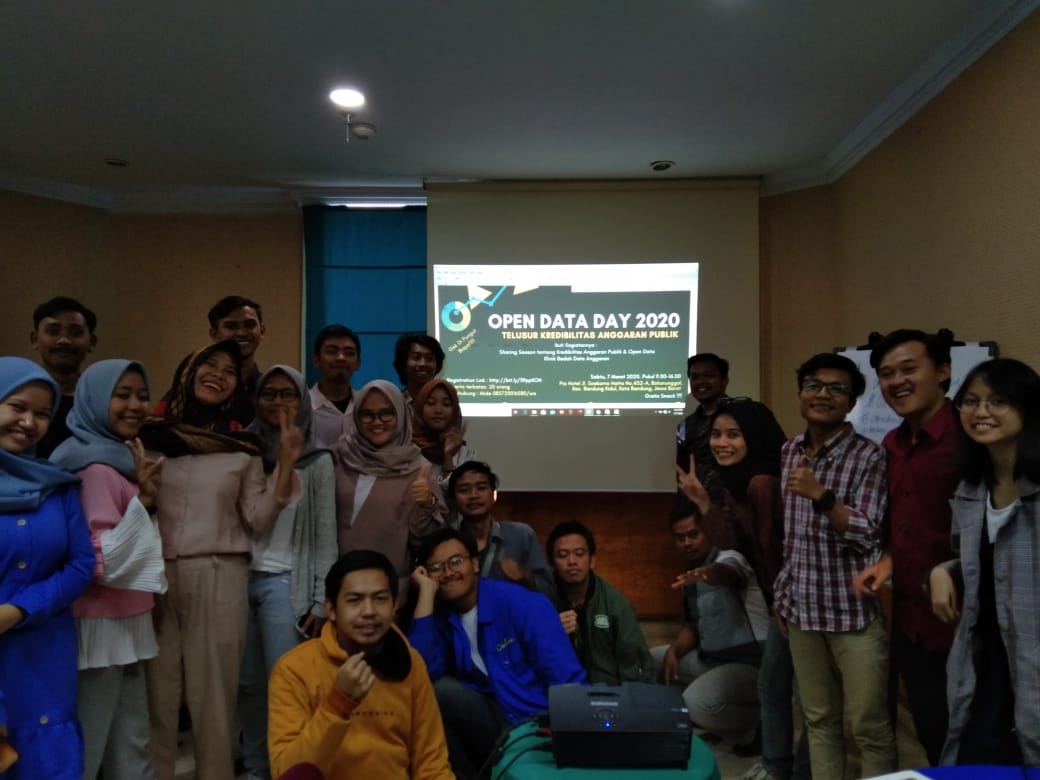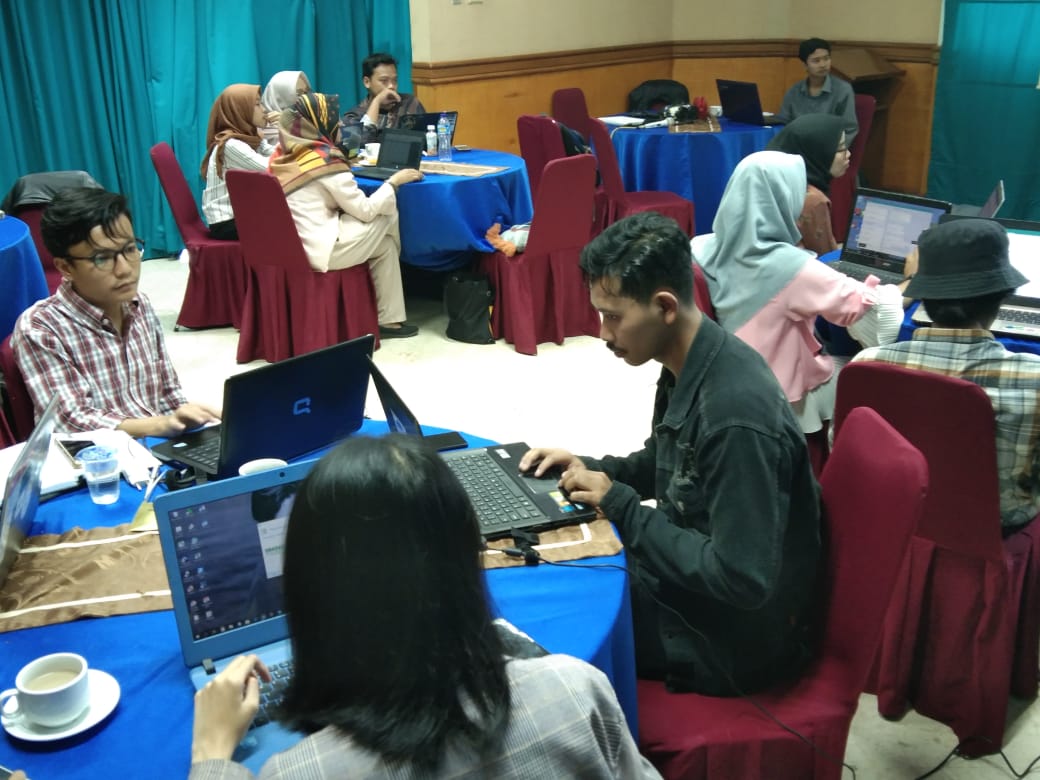On Saturday 7th March 2020, the tenth Open Data Day took place with people around the world organising over 300 events to celebrate, promote and spread the use of open data. Thanks to generous support from key funders, the Open Knowledge Foundation was able to support the running of more than 60 of these events via our mini-grants scheme.
This blogpost is a report by Rizki Estrada and Aang Kusmawan from Perkumpulan INISIATIF in Indonesia who received funding from Datopian to host a youth open budget hack clinic building on the principles of public participation in fiscal policy from the Global Initiative for Fiscal Transparency.
Indonesia has entered the cycle of the Open Government of Indonesia action plan since 2012. And strives to expand the spirit of openness, especially in regional governments.
This is why Open Data Day 2020 was an opportunity for Perkumpulan INISIATIF to talk about data and how the data developed by local governments is often easily accessible, especially public budget data.
The city of Bandung is the capital of the regional government of West Java Province, one of the buffer regions of the capital city of Jakarta. As a manifestation of the commitment of the Bandung regional government in implementing a public information disclosure policy and the Open Government action plan, as of December 2014, the Bandung city government launched the Open Data Portal.
The enthusiasm and good intentions of the regional government of West Java Province are in stark contrast to the Corruption Eradication Commission which was ranked as the second most corrupt province in the 2014-2019 period.
For Open Data Day 2020, Perkumpulan INISIATIF collaborated with Open Data Lab Jakarta to carry out an event attended by 20 student participants. Over the course of the day’s activities, participants were introduced to the concepts, procedures and substance of public budgets and fiscal policies, public information disclosure policies and the principles of applying open data in Indonesia, as well as techniques for analysing public budget data.
Before entering the budget data analysis technique, participants were invited to visit the Bandung data portal services (http://data.bandung.go.id) and the West Java Open Data Portal (https://data.jabarprov.go.id/dataset) to check the availability and quality of budget data displayed. As a result, participants considered that the published budget data was not up-to-date with the most recent dataset being from 2016-2017.
Furthermore, participants are invited to use budget data sourced from the West Java Province budget for 2020 which has been directly accessed in print. All participants appeared to be active and serious in analysing budget data according to the topic determined as training material, namely the education, health, social and environmental protection sectors.
The results of the participants’ budget analysis were quite interesting and varied. They concluded that the size of the existing budget allocation does not necessarily correlate directly with problems that occur in the area of West Java Province. Even though the government has started to be open with their respective budget data, efforts to achieve public welfare through good public budget allocations are still far away. With the openness of data, advocacy efforts to improve people’s welfare through budget analysis work are a necessary condition to be carried out sustainably.










